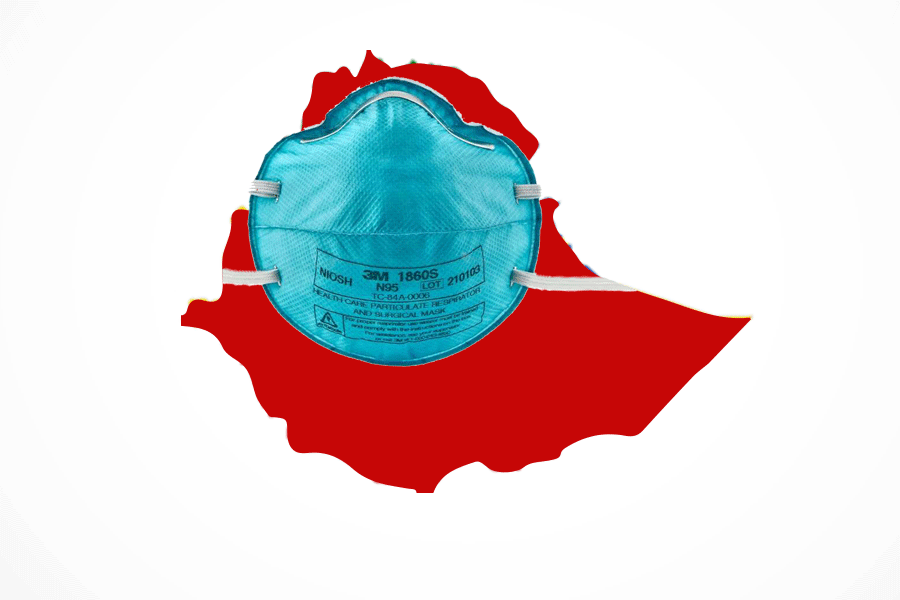
Agenda | Nov 02,2019
Family-owned businesses are attributed to a high rate of collapse for lack of proper management, poor succession strategy, and insufficient funds, though they constitute the oldest and most dominant form of business organization.
Despite mobilising 85pc of the country’s economy under the private sector, they have very little to show for it, according to Zekrie Nigatu, the managing director of HST Consultant Plc.
The consultation firm organised a forum to identify the possible root upheaval and revival strategies for family businesses, seeking speakers from the manufacturing, law, and finance sectors.
The often-cited issue of family businesses appears to be sustainability. About two-thirds to three-quarters of family businesses either crumble or are sold by the pioneers during their own tenure, leaving only 15pc to continue up to the third generation in the hands of the descendants of the founders.
Failure to conceptualise the business plan has also been raised as a flaw for family businesses.
One of the panelists, Hanna Tilahun, managing director of Bezale Construction Material Manufacturing, argues the economic climate has made the business ground unfriendly for everyone, and family-owned businesses are not immune. She manages a first-generation family business with her husband and describes owning a successful business in this day and age as a luxury.
The more seasoned second-generational business owner Salahadin Khalifa has a different approach. He is the manager of SMATARA Shipping & Logistics, the sister company of Kadisco Hospital and Kadisco Chemical Industry under Kadco Group. The family-owned business sustained for half a century.
"Businesses can only grow through an investment in a competitive market," said Salahadin.
The intergenerational work style differences, with self-employment being the motto of the youth, were set as one factor for the failure of sustaining family-owned businesses.
Hanna compares working for someone to sin these days and firmly states an heir should first work as an employee- encounter hardships for self-growth, develop skills necessary to lead the business.
"They should learn from the ground up," she told Fortune.
Tsedeke Yihune, managing director at Flintstone Engineering & Homes concurs. In his observation, the problem is not an unwillingness to transfer the business to the next generation, but rather the lack of interest in the heir.
"The current generation wants to do their own thing," he told Fortune.
Tsedeke is a businessman who strongly advocates against involving family lineage with businesses. His sentiments are, running business with family requires hiring an expert to compensate for their shortcomings, and ensure control of decision-making to avoid complacency.
“If your business is not growing, it is dying,” he said.
The lack of policies and principles on how businesses and assets can be transferred down is another detrimental factor to the sustainability of family-owned businesses. Over time, as the family goes through the next stages of its life cycle, more members join the business with different opinions on how the business should be run and its strategy set.
It becomes mandatory then to establish a clear family governance structure that will bring discipline among family members, prevent potential conflicts, and ensure the continuity of the business.
Mehreteab Leul, a managing partner at Mehreteab & Getu Advocates law firm, observes that there are limited laws and policies when it comes to family-owned businesses. According to him, qualifications and criteria for whom businesses are inherited should be clearly stated.
He suggests transferring one’s business to a trustee who can equally manage the business well even without relations, by virtue of which specific property is constituted in an autonomous entity to be administered by a person.
He said there should also be a trust fund authority as in the case of a capital market authority.
“Family business inheritance through a trust fund is critical,” he said.
The Derg regime, under Mengsitu Hailemariam, unravelled extensive nationalisation of industry, banking, insurance, large-scale trade, and urban land and extra dwellings completed the reforms and wiped out the economic base of the ruling class.
Financial issues are a bone of contention with the lack of non-collateral financing and credit for family-owned businesses that might drive businesses to crumble down.
One of the panellists, Melaku Kebede, president of Hibret Bank, said the country's system does not allow banks to raise 30pc of their non-collateralized loan system, making it hard for businesses to have access.
He sees not having a credit rating company that rates how much loans are dispersed through banks as a challenge. The light at the end of the tunnel Melaku sees is that since the capital market is open there will be credit-rating companies in the country. Melaku believes that will open doors for banks will go as far as 50pc with their non-collateralized financing.
"It's one way we'll grow our risk capital," he said.
PUBLISHED ON
Mar 11,2023 [ VOL
23 , NO
1193]

Agenda | Nov 02,2019

Agenda | Aug 04,2024

Fortune News | Aug 18,2024

Exclusive Interviews | Apr 19,2025

Fortune News | Apr 06,2024

Commentaries | Jul 31,2021

Fortune News | Jan 29,2022

Covid-19 | Mar 28,2020

Fortune News | Dec 04,2022

Viewpoints | Nov 12,2022

Dec 22 , 2024 . By TIZITA SHEWAFERAW
Charged with transforming colossal state-owned enterprises into modern and competitiv...

Aug 18 , 2024 . By AKSAH ITALO
Although predictable Yonas Zerihun's job in the ride-hailing service is not immune to...

Jul 28 , 2024 . By TIZITA SHEWAFERAW
Unhabitual, perhaps too many, Samuel Gebreyohannes, 38, used to occasionally enjoy a couple of beers at breakfast. However, he recently swit...

Jul 13 , 2024 . By AKSAH ITALO
Investors who rely on tractors, trucks, and field vehicles for commuting, transporting commodities, and f...

Oct 25 , 2025
The regulatory machinery is on overdrive. In only two years, no fewer than 35 new pro...

Oct 18 , 2025
The political establishment, notably the ruling party and its top brass, has become p...

Oct 11 , 2025
Ladislas Farago, a roving Associated Press (AP) correspondent, arrived in Ethiopia in...

Oct 4 , 2025
Eyob Tekalegn (PhD) had been in the Governor's chair for only weeks when, on Septembe...